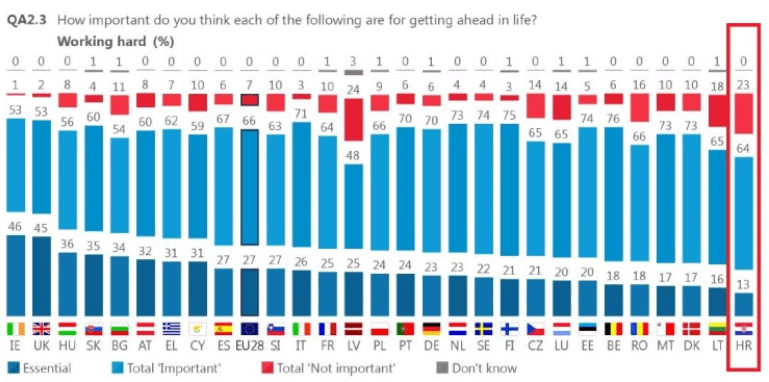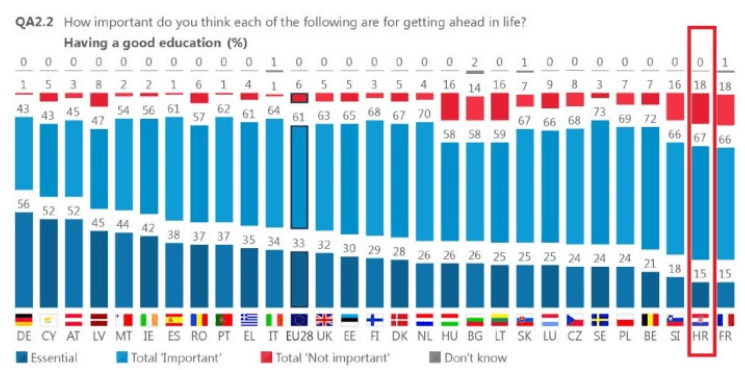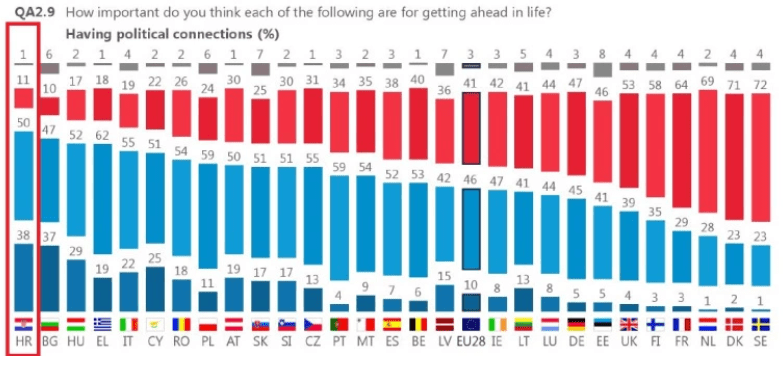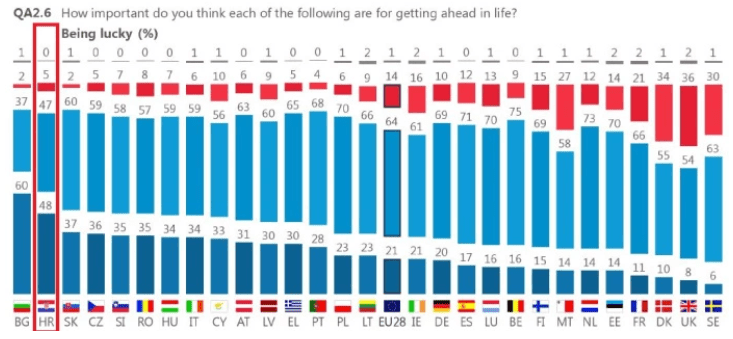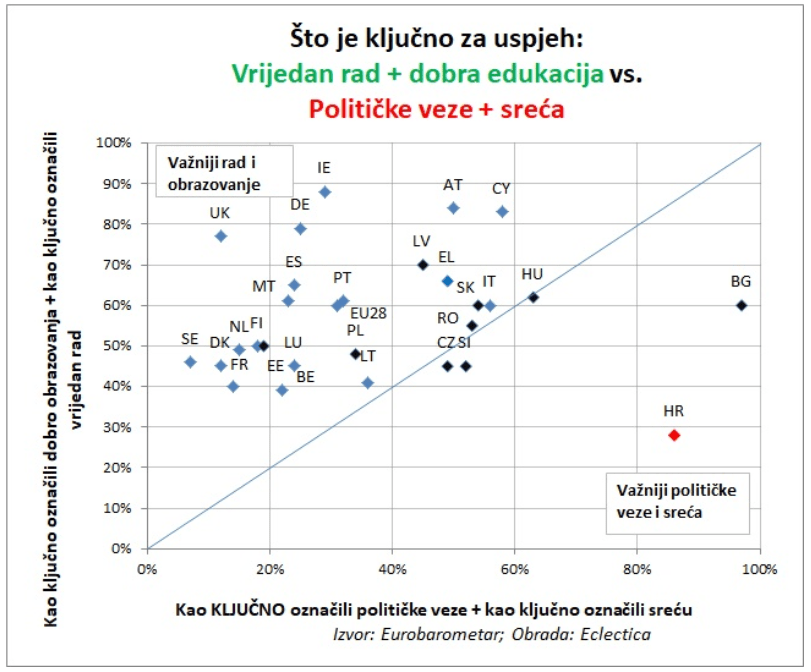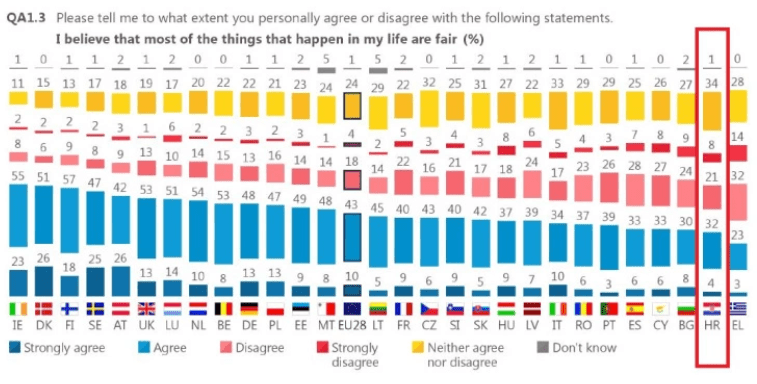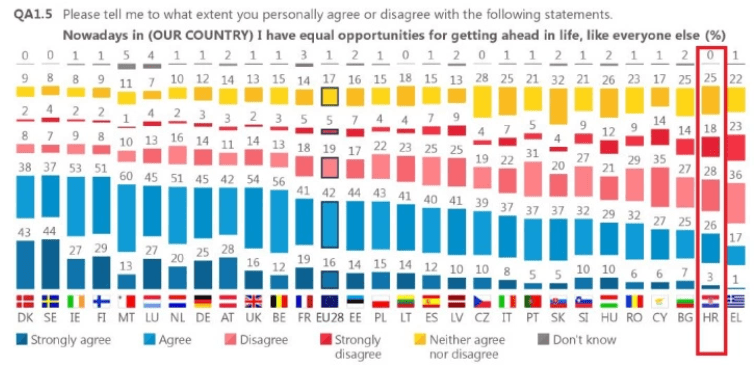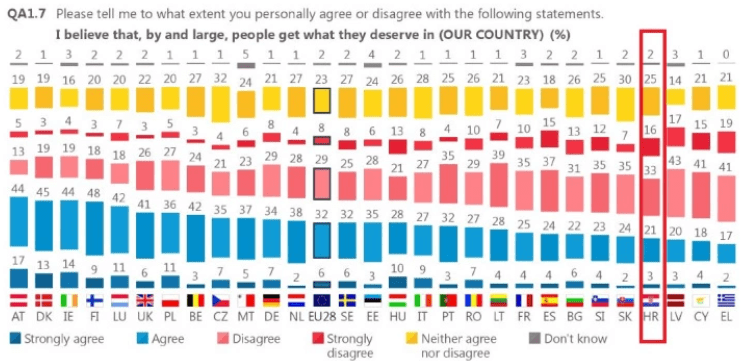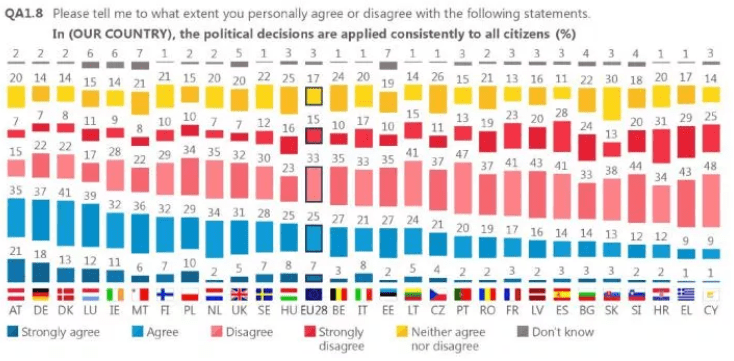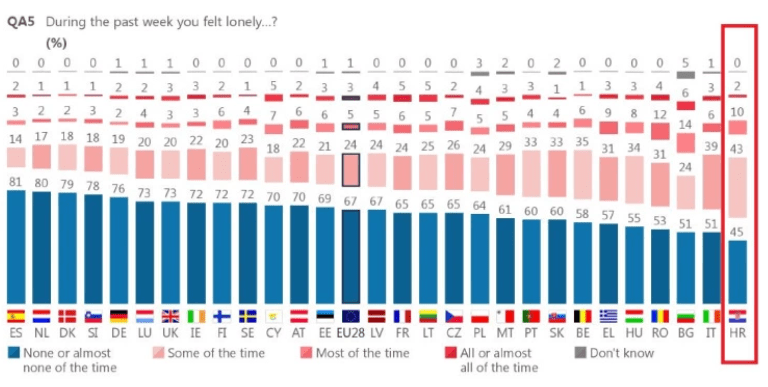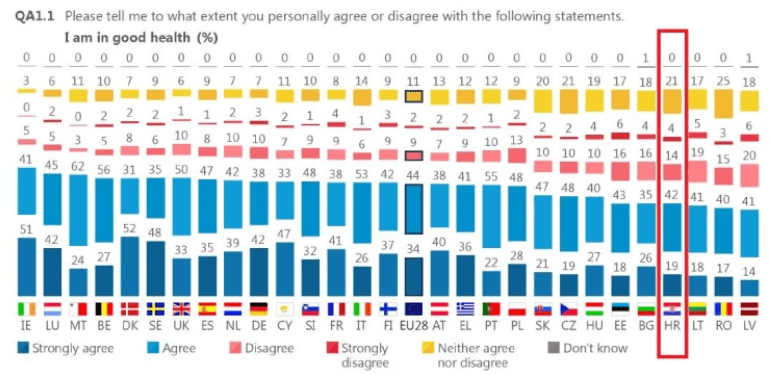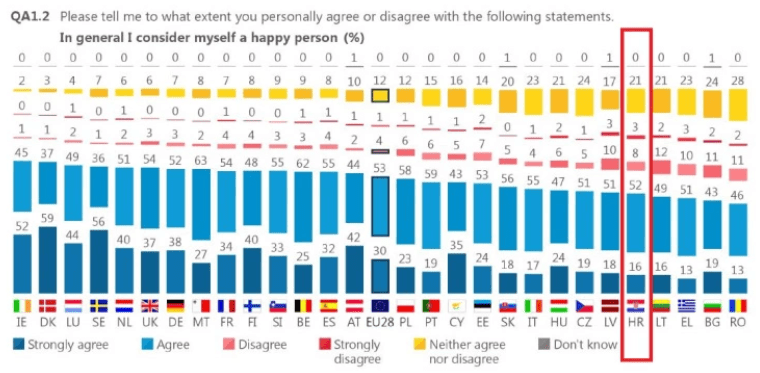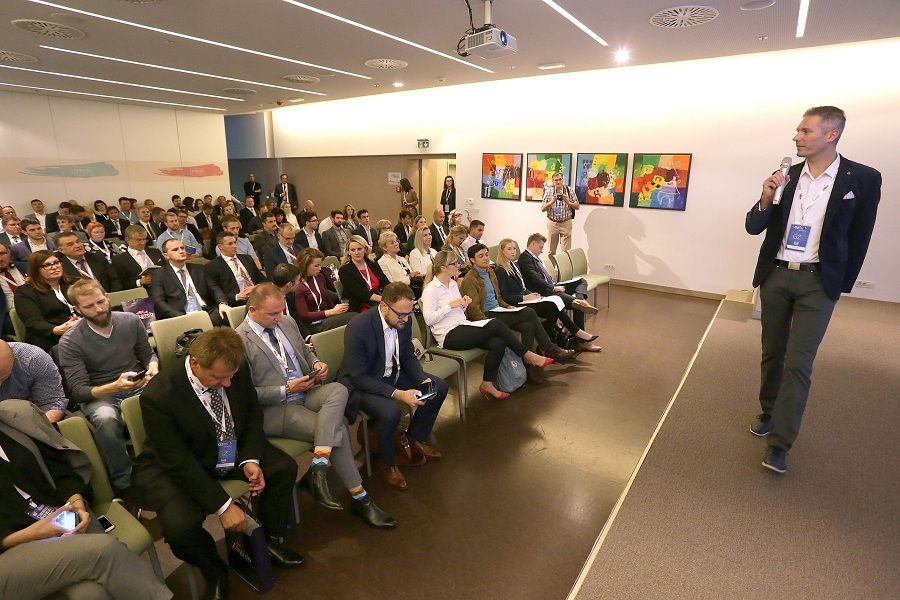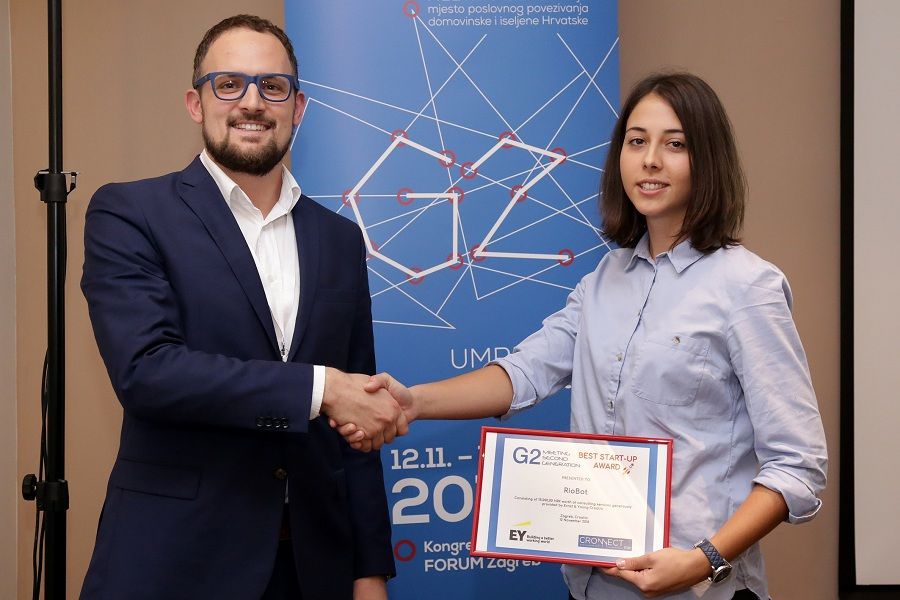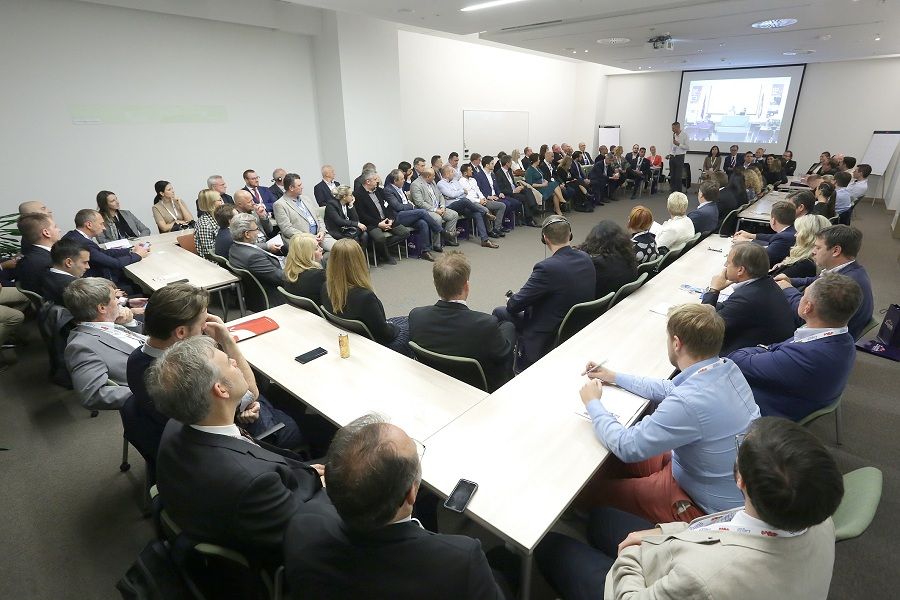Snapshot of Despair and Hope in The Beautiful Croatia with Nenad Bakic
November 14, 2018 - The 4th G2 Croatian diaspora conference concluded yesterday at Forum Zagreb, a stimulating 2-day event which brought together the widely dispersed Croatian diaspora from North and South America, Australia and every part of Europe, as well as strong representation from Croatia's entrepreneurs and start-up businesses.
Among the many excellent presentations, I had been particularly looking forward to successful entrepreneur Nenad Bakic's presentation on his Croatan Makers project, bringing technology and robotics to the youth of Croatia today. With all the business interests he is running, I have no idea how he finds time to run his STEM revolution, which has distributed 100,000 micro:bit devices into over 1,000 schools, the largest private educational initiative in Croatian history. But then when he sent me a message at 5am this morning, I realised the secret of his phenomenal productivity - the man simply must never sleep. I guess the fact that I immediately responded means that not do I.
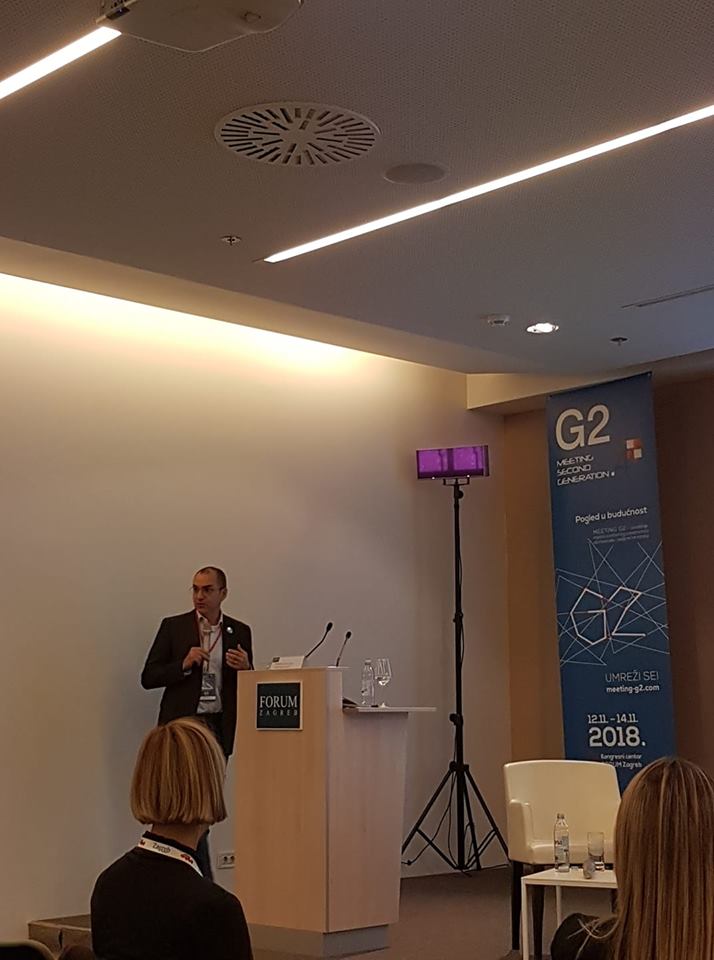
I know Nenad reasonably well, and he was kind enough to invite me to the EY Entrepreneur of the Year award earlier this year, where I got a glimpse of a very vibrant and unified entrepreneurial Croatia, which really gave me hope for the future.
I had never heard Nenad give a presentation before, and so I was curious to see how he did. It turned out he did rather well indeed, easily the most engaging presentation of the entire conference, at least in the opinion of this foreign fly on the wall.
He also laid out quite brutally the realities of life in The Beautiful Croatia - how people perceive aspects of life here, using a survey by the European Commission on public opinion about their countries. The survey was published in December 2017, and Nenad wrote about it on his blog earlier this year. I was not the only person who sat shocked in the audience. The data he was presenting was not only shocking, but it also went a long way to explaining why so many people are leaving Croatia today.
The survey asked a number of questions about perceptions of life in the respondent's EU country, where they were asked to choose from four responses on how much they agreed with a particular questions - Essential, Total Imporant, Total Not Important and Don't Know. Croatia was at the bottom of almost everything, with the VERY important exceptions of two things - it tells an awful lot about the reality of the daily grind in Croatia (tourists, look away now - it is a GREAT place for a 2-week holiday).
How important is working hard to getting on in life. Croatia, bottom of the EU table of citizens thinking this as essential.
How important is education in getting on in life? Not very (Croatia is joint bottom with France).
How important are political connection to getting on in life? We have an Olympic champion - Croatia, 12 points!
How important is being lucky to getting on in life? The belief in luck is second only to Bulgaria in the EU.
So a country that does not believe in the need to work hard or have a good education, but where political connections and luck are all you need ranks rather differently than most of the rest of the EU, our lucky Bulgarian colleagues aside.
Although Nenad stopped there yesterday evening, I took a closer look at some of the other questions. People here think life is pretty unfair, more so than anywhere but Greece.
Equal opportuities? That is one we could laugh about over a raki or three with the Greeks.
And people certainly don't get what they deserve in life, if they life in Croatia.
Do political decisions apply to all? Not, apparently, in Croatia.
And a rather surprising finding, for me at least - Croats feel themselves to be the loneliest nation in the EU.
And don't feel particularly healthy.
With not a lot of happiness.
Nenad Bakic is not a man to dwell on misery and the failings of Croatia. In business and in his educational initiatives, he is working round the clock to bring positive change, and I applaud him for that. The only way to move Croatia forward is through education. Education. Education. Education.
And so, from such shocking findings, he moved his speech to the positive initiatives he and his wife Rujana are working on with their partners. Rather than do a detailed analysis of that work today, here is an English language summary of Croatian Makers and their objectives. You can visit the website here.
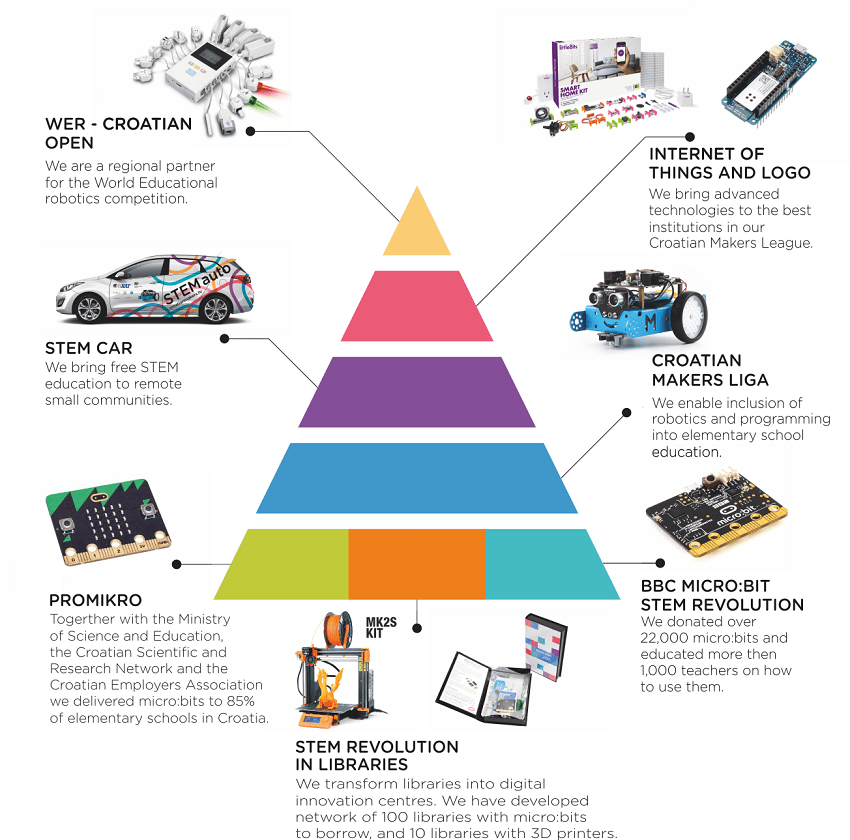
IRIM
IRIM (Institute for Youth development and Innovativeness) is a Croatia-based non-profit organization (private foundation), which has developed and implements the largest extracurricular STEM program in EU – the Croatian Makers movement, which now includes over 100,000 children. Although IRIM originates from, and primarily operates in, Croatia, it has recently transposed its activities to Serbia, BiH and Kosovo, where local partners deliver IRIM-designed major projects (with initial funding from IRIM), also with the aim of engaging in joint regional activities. Such cross-border co-operation is of utmost significance in the region which still suffers consequences stemming from the conflicts in the 1990s.
IRIM donates a large amount of equipment (also consisting the main cost of project operations), but only as foundations for wide and deep knowledge distribution using that equipment, through organized activities, teacher education (more than 3,000 teachers educated in Croatia only), content development etc.
The initial and still core financing comes from local philanthropists, family Bakić, but due to developing size and scope of its activities it has lately been attracting additional most of the financing from external sources, including citizens (through public crowdfunding campaigns and general donations), private companies, national and EU development funds. At the moment, IRIM employs 14.
IRIM’s mission
IRIM’s core mission is to empower all the children in Croatia and the region to develop STEM competencies necessary for them to be equal citizens of 21st century, by providing not only equipment, but also education and other activities.
The educational system in Croatia and the neighboring regional is undergoing reforms, but currently it cannot deliver well neither in STEM fields nor in developing key competences such as collaboration, communication and learning skills, creativity, curiosity, persistence and leaderships, and IRIM’s activities are not only naturally inductive for developing those competencies, but also on purpose geared toward them. A nice illustration is this excerpt from a prime-time feature on the national TV about Croatian Makers in Dvor, one of the least developed towns in Croatia:
(turn on subtitles in English).
Additionally, by a relevant research by Eurostat, the citizens of Croatia have the lowest in EU estimate of the importance of education and hard work as key elements for success, and the highest estimate of political connections and luck. It is similar in Western Balkans countries where IRIM’s designed activities are deployed by local partners. Hence, IRIM’s main social mission is creating a culture of success, aiming at strengthening meritocracy as the central pillar and main driver in society.
The central player in educational ecosystem, with strong capacity for co-operation
IRIM strong capacity for partnership and a wide national/public support adds significantly to its success. For example, a project called STEM Revolution was primarily financed by the largest-ever crowdfunding campaign in Croatia, topping over 300,000 USD donated by more than 2,500 individuals and organizations. More than 25,000 coding devices were delivered to more than 1,000 educational institutions including schools, universities, NGOs, orphanages etc., together with extensive teach-the-teacher workshops and developing content.
Following STEM Revolution’s unique success, IRIM partnered with the Ministry of Science and Education to introduce coding to Croatian schools, delivering coding devices micro:bit to all the Grade 6 pupils, developing cross-subject content, and educating over 2,000 teachers. Other significant partners include Croatian Employers Association, Rotary clubs, and a number of corporations like Croatian Telecom, Croatian Post, Tele2, INA – Croatian national oil company, etc., and IRIM has successfully applied to a number of national and EU grants.
IRIM’s unique approach is combining grassroots (movement) with institutionalization. Its strength stems from the base, teachers and children voluntarily joining the movement, but it always strives to institutionalize, getting educational and other institutions on board, thus avoiding friction and using institutional leverage.
Croatian Makers movement by its size and intensity has a great impact not only on schools and other educational institutions and the school system, but the society as a whole. IRIM’s focus in on equality of opportunities and for this purpose IRIM has developed a family of platforms, ranging from most democratic to more complex project like robotics league, advanced robotics competition and other advanced projects. A good example of complex projects is a massive IoT collaborative project which includes 100 schools, engaging in simultaneous measurements of 7 ecological variables and presenting them at a public website in real time. The ability to recruit such a large number of partners for such an advanced project demonstrates the size and depth of the movement and its capacity to devise and manage complex projects.
IRIM’s projects / family of platforms
- STEM revolution / ProMIkro - The most democratic IRIM’s project was introducing coding to Croatian educational system and communities at an unprecedented level using a physical-computing controller micro:bit. Previously, there was no coding in Croatian schools, apart from patchy optional subject.
This project has been implemented in two steps. The first was ‘STEM revolution’, primarily funded by the most successful crowdfunding campaign ever in Croatia. It brought 25,000 coding devices to more than 1,000 institutions in Croatia (elementary and secondary school, universities, libraries, orphanages …) together with developing curriculum and teaching the teachers. For the second, ProMIkro, IRIM teamed up with the Ministry of Science and Education which funded 45,000 micro:bits for all the Grade 6 children in Croatian schools, thus effectively introducing coding to elementary schools. The schools opted in voluntarily, and 85% of them opted to join the project. Thus coding was thus effectively introduced to Croatian elementary schools.
Teaching the teachers was the key element of the projects. Following a large-scale education effort in STEM Revolution, in ProMikro IRIM delivered more than 500 workshops in 3 waves for 2,000 teachers, out of whom the majority never, or rarely, coded before. The workshops were executed by a network of 30 technology ambassadors IRIM developed from its ecosystem, and workshops were financed by the Croatian Employers’ Association. IRIM developed extensive cross-subject curriculum comprising of more than 60 teaching lessons ready to be taught in class.
- Croatian Makers Robotics League is IRIM’s flagship project in robotics, the largest competition of such kind in EU with more than 11,000 children included in more than 550 schools and non-profits, whereas IRIM has donated more 2,750 robots. The educational institutions participate regularly, in 4-5 rounds during the schools year, and locally, so that the subject can be integrated into the curriculum, and not be (as is usual with robotics competition) one-off.
The successful concept of the Robotics League has since been successfully implemented in Serbia, BiH and Kosovo by local partners (with IRIM’s initial donations), and the one in Serbia now includes almost 500 schools, and has been mostly financed by Serbian government.
It important to emphasize that the Robotic League is using the same robotics platform (mBot by Makeblock) in all included countries, which ensures full compatibility and interoperability of activities at regional level.
- Advanced regional robotic competition WER using advanced robotics sets by Abilix, participants being all the best regional teams from abovementioned leagues is regional flagship competition in educational robotics. IRIM is in talks with another global leader in educational technology, Makeblock, to implement Makeblock regional / EU competition, and its ‘league’ concept to be implemented globally.
- STEM car, a ‘modern era-moving library’, bringing free coding and robotics classes to less developed communities. STEM car is a continues project (in 2018. there will be 6 cross-country tours lasting 2-4 weeks) and has already visited hundreds of villages and towns, with hundreds of workshops for thousands of kids, introducing them to the world of technology and inducing them into other IRIM’s activities.
- Izradi! IRIM uses several channels of knowledge distribution, among which is a premier one is its content platform Izradi! (=Make!).
- STEM Revolution continues - Libraries - Especially worth noticing, whereas IRIM aims to empower public libraries to become centers for developing digital competencies in local communities. It is equivalent to e.g. Singapore’s national Digital Maker program aiming to transform the nation introducing technology to schools and families (using primarily micro:bit, as IRIM does). Within the project, IRIM donated
- coding devices micro:bits for free workshops and to borrow to 100 public libraries in Croatia
- donating 3D printers to 10 and to the National and University Library.
Thus, libraries are transformed into public learning spaces for new technologies, but also as digital innovation centers.
- Advanced IoT in Croatian schools Technologically most advanced project by now for the whole Croatian Makers ecosystem has been, financed primarily by Croatian Telecom, which has been the largest outside donor, IRIM winning 2 of its major grants.
Using advanced Arduino technology, 100 educational institutions – schools, NGOs, orphanages – simultaneously measured and publicly displayed 7 ecological variables, including micro-particles. That final demonstration was preceded by two calls for creative projects in using IoT related to smart homes and pets and domestic animals.
President Opens Meeting G2 Diaspora Business Conference
Croatian President Kolinda Grabar Kitarović has officially opened the Meeting G2.4 conference in Zagreb. The fourth edition of the conference, aimed at developing business connections between Croatia and the diaspora, is being held at the Forum Congress Centre in Zagreb, with more than 150 business people from Croatia and abroad attending. More than 70 successful businesspeople from 19 countries have gathered to discuss the development of business relations with Croatia. The largest delegations are those from Australia and Austria, with more than 20 participants each.
At the opening, the president said: “A whole other Croatia lives outside the official borders of the Republic of Croatia, and the Meeting G2 makes an important contribution to linking Croats in Croatia with those living abroad. We must realize that people are the greatest treasure and an advantage and that they are building the future, which makes the investment in demographic renewal a priority. I am particularly pleased that this initiative came from returnees and I want the voice of businesspeople to be heard. Their suggestions and constructive criticism about the measures we need to take in the country for business development, as well as about activities we can do abroad, are something which we can all benefit from.”
The Meeting G2 conference began yesterday afternoon with the competition of eight Croatian start-ups, which had to present their innovative projects in front of the gathered investors in just 10 minutes. The jury consisting of business professionals and entrepreneurs from Croatia and abroad awarded the first prize to RioBot, a chatbot that functions on the basis of artificial intelligence and makes it easier to book and track scheduled appointments with various service providers. The winning project received EY’s consultancy services worth 15,000 kuna. Interestingly, the other seven projects – 3Dtech, Authland, ExRey, Good Game, MONAstays, Tinja and WePark – are also apps and various platforms, such as those for gaming, booking local tourist experiences, connecting solar panel installers with users, parking reservations and the like.
During the Who is Who in G2 session, each participant had an opportunity to present their business in one minute and say with whom they wanted to connect. This made it possible to quickly exchange contacts and create business connections immediately after the event. It was possible to hear, at one location and in less than two hours, about a number of successful projects – construction projects, financial projects, logistics, heavy industry, ICT, artificial intelligence, architecture, various consulting services and many others.
In order to better connect the diaspora with Croatia in the future, the Central State Office for Croats Abroad presented the project of developing the Registry of Croat Entities outside Croatia. By the end of the year, a pilot project will be implemented in three countries (Germany, USA, Argentina) which will gather data on physical and legal entities in these countries. Users will be able to express their interest for connecting with specific events and organizations. The idea is for the registry to function as a communication platform between all users.
Today, the conference will feature seven panels with more than 40 participants. The topics are the importance of chambers of commerce for exporters, innovative design in the wood industry, Croatian delicacies and their placement on markets around the world, real estate, non-traditional forms of tourism and blockchain in Croatia.
The meeting-g2.com website has all the detailed information about this year's programme and previous meetings, and all interested to join can sign up online.
For more on Croatian diaspora, click here.
Diaspora Pleased with Government’s Cooperation
ZAGREB, November 10, 2018 - The head of the government's Council for Croats outside Croatia, Ivan Grbešić, said on Saturday that Croats outside Croatia had reason to be optimistic as positive steps were visible after 20 years of promises, while Foreign Minister Marija Pejčinović Burić said the government was trying to advance cooperation and ties between Croats at home and in diaspora.
Speaking at the start of a two-day diaspora conference in Šibenik, Grbešić said those positive steps included amendments to the Citizenship Act, the register of Croats outside Croatia, and programmes for learning Croatian.
He said there were still outstanding issues and that the biggest worry was the position of Croats in Bosnia and Herzegovina (BiH). "The indivisibility of Croats is also constitutionally protected, so we think we have the right as well as the duty to help Croats in BiH."
Grbešić said the Council's cooperation with the government was good but that change was too slow. "In the countries we live in, we have learned to discuss with arguments and respect others' opinions, which we sometimes don't share, but that's the only way to create unity and prosperity... Whether we will be successful depends on whether we can communicate."
Minister Pejčinović Burić said that strengthening the unity of diaspora was everyone's task and that this conference was "a confirmation of our unity and ties." "We are tied by a common homeland, a common identity, language, history, cultural heritage and our faith," she said, adding that Croats outside Croatia had played an outstanding role in the most difficult moments, such as in pushing for Croatia's freedom, independence and international recognition.
She said that commitment still existed "in many matters of importance for Croatia" and that the incumbent government was doing its best to advance cooperation and ties between Croats at home and abroad. "We especially advocate the rights of Croats in European countries and our key foreign policy priority is strengthening the Croat people in BiH."
The minister said amendments to the Citizenship Act, which are in procedure, were aimed at answering many outstanding questions faced by Croatian emigrants.
For more on Croats living abroad, click here.
Siniša Grgić - A Bright Example of Croatian Diplomacy
By: Ivana Josipovic via Narod.hr on November 7, 2018
Courtesy Translation By: Marko Buljan
Dr. Siniša Grgić is one of the few Croatian diplomats who has been very well accepted by his recipient country, the United States, as well as by the Croatian expatriate community at large. His knowledge, leadership and professionalism have been equally recognized by both the grateful Croatian communities and his colleagues from the foreign diplomatic corps. Dr. Grgic will soon become the new Croatian Ambassador to Sweden.
The Third Annual Conference of Croatian-American Professionals, held in Silicon Valley two weeks ago, was organized jointly by the Association of Croatian American Professionals (ACAP) and the Consulate General of the Republic of Croatia in Los Angeles. Consul General Dr. Siniša Grgić used this opportunity to say farewell to the community of Croatian Americans after three years of productive work in California and 18 other jurisdictional US states. His new post will be that of Ambassador of the Republic of Croatia to the Kingdom of Sweden. Marko Buljan, the Managing Director of the conference, told us: “Croatia has a consul general who has awakened the trust of the community in Croatian institutions. Such diplomats are deeply needed. Thank God, we have them“.
“When he came to our community, he addressed us with a personal story of a boy and a girl growing up without their fathers. The boy's father never returned home from Bleiburg, and the girl's father never returned from Goli Otok Island. At the end of the story he disclosed that the boy and the girl were his parents. His personal testimony made a strong impression on me, and his hard work and determination made an even stronger impression. We had better and worse consuls, but Siniša is a special one and it is quite unlikely that we will have a better one” said Nada P. Matulić, president of the Croatian World Congress in the United States.
Robert Kohorst, the American Ambassador to Croatia, who came from Los Angeles, has recently praised on his twitter account the acquaintance with Siniša Grgić. Both are friends with Mike Antonovich, the longest tenure Los Angeles County Supervisor and one of the key influencers in the Republican party. Dr. Grgić has developed equally good relations with Democrats in the United States, especially with Janice Hahn, a former congresswoman, today the LA County Supervisor, and Nanette Barragan, her successor in Congress. The mayor of LA Eric Garcetti and the LA City Council members welcomed him more than any other consul at the City Hall. His colleagues from the LA Consular Corps (110 countries represented in LA, one of the largest consular corps in the world) elected him as the member of the Executive Committee. The EU consuls (24 of 28 EU countries represented in LA) elected him as their local chair last year. “For the occasion of the 60th anniversary of the EU, he organized the performance of the Ode of Joy (the EU anthem) in Los Angeles City Hall. The famous Croatian bass-baritone Boris Martinović and the Ukrainian soprano were singing, while a Russian national was playing a cello. All of this was broadcasted on local television. Siniša simply has a sense of doing the right thing, and that evokes our pride of him and of our Croatian heritage.“ says his friend Miro Koletić from Los Angeles.
Dr. Grgić received his Ph.D. in mathematical graphs theory in the field of information science and developed a new model for link prediction in social networks. The dean of the University of Zagreb, Prof. Damir Boras, himself an electronics engineer, was a mentor to Dr. Grgić and had only good words about him: “Siniša has made a fantastic dissertation and developed a link prediction model in social networks, better than any other known model in the world. I am glad I was his mentor!” Although he is an engineer, Dr. Grgić has completed a respectable number of courses and graduate studies at the world’s most famous universities such as Columbia and Fordham in New York, and the Executive-MBA program at Harvard Business School in Boston. In Japan, he has completed the Leadership Academy of Jaycees (JCI), an organization that he started in Croatia.
Dubravko Miholić, a longtime secretary and deputy president of the Croatian Exporters Association and Director of the Croatian Tourist Board in Czech Republic today, says: “He alone wrote almost all basic documents for Croatian Exporters, from goals to statutes and rules of procedures. He launched the association, with four of us and other founders, and invested his own money to organize the first convention. Although he was a key driver, he immediately handed the controls over to others-the largest Croatian exporters- because he had made it for them. He has the ability to recognize the moment and he is a real leader. The first convention of Croatian Exporters in 2004 was the biggest event ever held at the Westin Hotel in Zagreb with over 1400 participants, directors and export companies.”, says Miholić. He has also launched several other associations, including the Europe House in Zagreb. “As one of the original founders of the Europe House Zagreb/ European Movement Croatia, he himself became involved when the organization took a wrong course. He had gathered new young forces that gave Europe House new momentum and he has fundamentally renewed the art-noveau jewel in the center of Zagreb with his own and his business partner’s funds. After successfully leading the association in key times during the negotiations for the accession of the Republic of Croatia to the EU, where we have both participated as part of the negotiating team of the Government of the Republic of Croatia, he handed it over to other members”, adds Miholic.
He helped his friends, Ksenija Pluscec and Nicolas Quesnoit to establish the Zagreb Dance Center; he was a ballroom dancer while a student. Nicolas, well known from Dancing with the Stars, says: “Sinisa is a Croatian Bill Gates. He lives a hundred years ahead of us. We are following his new career in diplomacy over Facebook and we are delighted to see capable people in Croatian diplomacy“. As one of the leading Croatian experts for Big Data, he created a well known business portal “Poslovna Hrvatska“ which he sold to the multinational company Bisnode (D&B Europe). That company has permanently raised the level of transparency in the Croatian economy. He created a similar company in Slovenia and the same in Germany for a group of foreign investors. “Whatever he does, he easily succeeds. He radiates so much energy and enthusiasm that nothing can stop him“, says his loyal business associate from the company he founded in 1998 and led for 12 years.
Despite success, or perhaps because of it, some media outlets attempted to smear him with a fictitious affair “The Island of Knowledge“ and thereafter expel him from the board of the national state-owned television. The “Island of Knowledge” project proved to be completely clean: the state attorney unequivocally affirmed that there was not a trace of improper activity related to the project. However, the consequences of orchestrated media attacks on this Croatian intellectual, entrepreneur and philanthropist were simply brutal both in terms of personal relationships and health problems. True to his character, he raised to the occasion: he sold all of his businesses in Croatia and moved to Germany where he worked for two years as a director of an IT company. In 2015, President Kolinda Grabar-Kitarović asked him to serve the Republic of Croatia by appointing him Consul General in Los Angeles. Following the protocols, background security checks were performed both by the Republic of Croatia and the USA which nullified the unfounded media attacks.
Most recently, Siniša Grgić was confirmed by the members of the Parliamentary Foreign Policy Committee as the new ambassador of the Republic of Croatia to the Kingdom of Sweden. Given his significant business network with deep links to Swedish businesses, it is to be expected that the cornerstone of his future work will be to develop and strengthen the economic ties between Croatia and Sweden.
People close to the President claim that he enjoys the President's great trust and that she sees him active in Croatian diplomacy for many years to come. His younger brother, Mislav Grgić, also a Ph.D., a former dean of the Faculty of Electronic Engineering and Computer Science, has expressed confidence that his brother's diplomatic career has just began. His education, multiple management skills and immense energy, combined with true and undeniable patriotism, makes this Croatian diplomat a threatening opposition to the old diplomatic staff we had unfortunately seen, and are still witnessing, in the Croatian Foreign Service. His example shows that Croatian diplomacy can be better, more active and more efficient.
For more information from the Croatian diaspora, follow the dedicated TCN diaspora section.
Reality TV Show Looking for Croatian Diaspora Farmers in Search of Love
November 9, 2018 - There are various initiatives to engage the Croatian diaspora. And then there is this one. Calling all Croatian diaspora farmers looking for love for reality TV.
An email in the TCN inbox.
I have a specific inquiry since I work in the production of Croatian television, on a reality show 'Farmer wants a wife' ("Ljubav je na selu"). We are looking for a specific candidate who is a single farmer, has Croatian descent and lives in rural areas of Europe, USA, South America, Canada, Australia or New Zealand.I have a specific inquiry since I work in the production of Croatian television, on a reality show 'Farmer wants a wife' ("Ljubav je na selu"). We are looking for a specific candidate who is a single farmer, has Croatian descent and lives in rural areas of Europe, USA, South America, Canada, Australia or New Zealand.
"Farmer wants a wife" show is currently being broadcast on Croatian television and we are looking for candidates for the new season. Basically, we are looking for a single (unmarried) male farmer with Croatian origins who deals with the agricultural branch. Since you are part of the Croatian community I hope you may have any information about my inquiry since I am working on a quite challenging project worldwide.
Apart from connecting people, creating novelties and friendships, our show is an excellent channel for promotion of rural areas and agricultural holdings. If you are familiar with any association, society or club that may help us you can forward this email or send me to their address.
Any diaspora farmers interested, please contact us at This email address is being protected from spambots. You need JavaScript enabled to view it.
And to get an idea about the show, check out the episode below.
Looking to follow the latest news and events from the Croatian diaspora. Follow the dedicated TCN diaspora section.
"Meeting G2.4." Conference to Bring Diaspora Businesspeople to Zagreb
The “Meeting G2.4. Look into the Future” conference, aimed at improving business ties between Croatia and Croats living abroad, will bring together successful businesspeople of Croatian origin from 14 countries and four continents and Croatia. The event will be held from 12 to 14 November at the Forum Zagreb Congress Centre under the auspices of President Kolinda Grabar Kitarović, who will address the second day of the conference to emphasise the importance of linking the diaspora and the homeland.
The largest delegations to this year's Meeting G2 will come from Australia and Austria. Australia is always the leader when it comes to the number of businesspeople coming to develop connections with Croatia, and this year’s conference will welcome representatives of three of the four Australian-Croatian chambers of commerce operating in the vast country. On the other hand, the Austrian-Croatian Chamber of Commerce has made a tremendous advance over the past months in promoting business ties between diaspora and the homeland, and this year it is expected to send a particularly strong delegation of companies dealing with delicacies production.
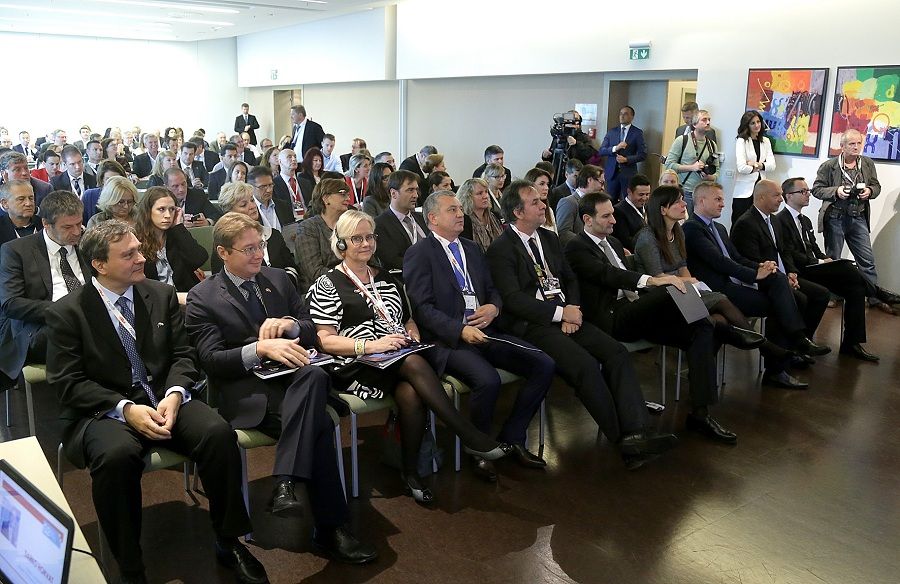
The conference will also be attended by businesspeople from the USA, Canada, Chile, Ecuador, Bolivia, Venezuela, Germany, Switzerland, Finland, France, Slovenia and Bosnia and Herzegovina. In addition to discussing investing in Croatia, this is also an opportunity for Croatian companies to strengthen their connections with other continents and countries and expand their export opportunities.
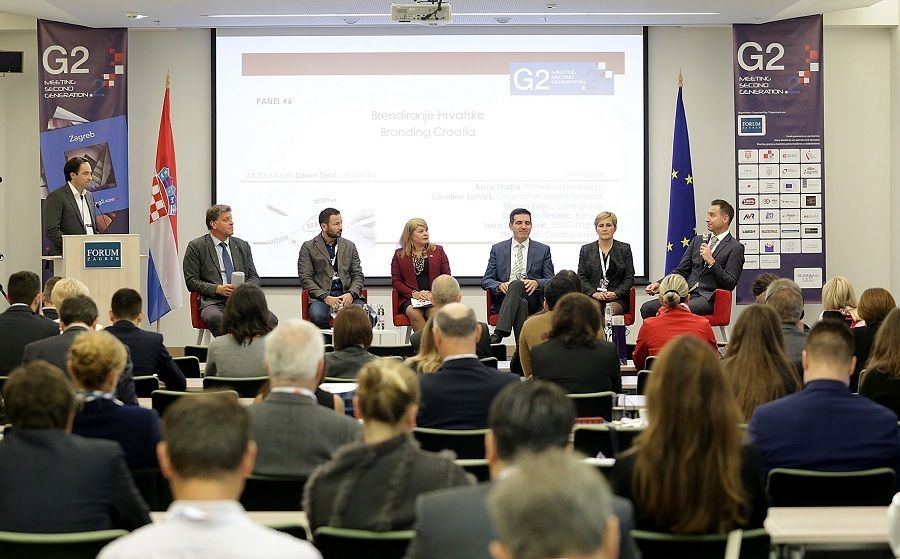
At the conference, the participants will take part in a varied programme of activities. The first day will see the "Pitch Session" which will present ten Croatian startups with the aim of obtaining financial support from businesspeople from around the world. The second day will bring seven discussion panels, with lots of opportunities for participants to meet and talk.
In the last few years, it has become obvious how important local chambers of commerce are for encouraging entrepreneurs to invest in Croatia. Therefore, one of the panels will discuss the Australian-Croatian chambers of commerce, which have achieved excellent results and contributed to Croatia's surplus in the trade exchange between the two countries. The panel on innovative design in the Croatian wood industry will present several companies which have achieved international success, such as Prostoria and Dizz Concept, which will share info on how they create added value through product branding.
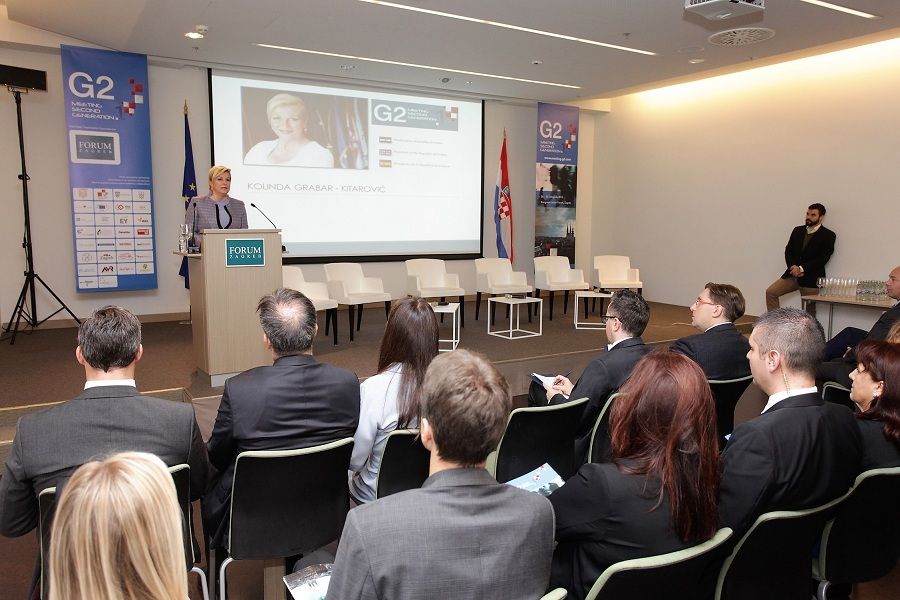
The panel on Croatian delicacies will present producers who have achieved major international success, which the wider public often knows little about. One of the participants will be Neb Chupin, the creator of the Dida Boža (Dalmatia) brand. At the panel on blockchain in Croatia, we will hear firsthand about the experiences of investing in blockchain projects and the latest global trends. One of the participants of the panel will be the crypto-investor and well-known entrepreneur Hrvoje Prpić. The conference will be closed by Nenad Bakić, an entrepreneur, investor and philanthropist, who will present the Croatian Makers project, which has achieved remarkable results over the last two years regarding the introduction of STEM activities in educational institutions and the local community.
The meeting-g2.com website brings more information about this year's programme and previous conferences, while all those interested can sign up to attend this year’s edition.
For more on the Croatian diaspora, click here.
Croatian Diaspora: David Jakic Among Speakers at G2.4 Conference in Zagreb
Croatian Diaspora MEETING G2.4 – PANEL ON THE POTENTIALS OF CROATIAN CHAMBERS OF COMMERCE
Australian-Croatian Chamber – Example of a contribution to increasing our exports
- This year's Meeting G2.4 conference will be an opportunity to present the Australian-Croatian Chamber of Commerce, one of the most active chambers of our diaspora worldwide. Chamber president David Jakić will be a guest speaker at the conference and present the activities that have contributed to creating Croatia’s surplus with Australia
- In 2016, exports to Australia increased by almost 50%, and the last two years have also been dominated by positive trends, resulting in stability of exports
- Approximately 200 businessmen are expected at the Meeting G2.4, 80 of which are successful businessmen of Croatian origin from abroad
ZAGREB, October 28, 2018 – The Meeting G2.4 conference titled “A Look into the Future”, focused on fostering business connections between Croats in the country and abroad and taking place from November 12-14 in Zagreb, will feature a panel discussion on the topic of “The Potential of Croatian Chambers and Businessmen Worldwide – Australian Example”. The Australian-Croatian Chamber of Commerce is one of the most active chambers of commerce of our diaspora worldwide and has been achieving excellent results in the recent years, in particular with regard to providing assistance to our exporters in the Australian market. Thus the year 2016 saw a growth of almost 50 %, from 17.7 to 26.3 million dollars, and for the last two years the value of exports has been in excess of 20 million dollars, with potential for further increase.
One of the panelists will be David Jakić, president of the Australian-Croatian Chamber of Commerce, which comprises four chambers in the country. Mr Jakić will be speaking about the Chamber’s work, as well as their vision of how to improve connections and deals with entrepreneurs from Croatia.
The panel will also be an opportunity to analyze sectors with the greatest potential for networking, to share the experiences of Australian entrepreneurs doing business in Croatia, to present the activities of the Croatian Chamber of Economy and of the Agency for Investments and Competitiveness in networking with our businessmen in Australia, as well as to discuss administrative barriers and how to attract investments. In addition to Mr Jakić, the panel will feature representatives of Croatian companies Katarina Line, Alpha Communications and Bagatin Polyclinic, who will share their first-hand experience in doing business with Australia. Incidentally, the largest share in Croatian exports to Australia is taken up by spices, sauces and preparations for sauces, as well as by electrical transformers and static converters.
The Meeting G2.4 conference, organized for the fourth consecutive time under the high auspices of the President of the Republic of Croatia, Kolinda Grabar-Kitarović, is expected to be attended by some 200 participants, of which 80 are successful businessmen of Croatian origin from numerous countries around the world.
The conference will also feature a pitch session during which Croatian startups will be presented to foreign investors, while the second day of the program includes as many as seven panels with almost 40 participants representing successful companies and organizations from the country and abroad. For example, a panel on Croatian delicacies will serve to present Croatian producers achieving great success abroad but less known to the broader public, whereas the panel on non-traditional forms of tourism will present various projects that can contribute to extending the season and improving the offer. The panel titled “Turn-key”, focusing on investors to Croatia, will familiarize the participants with the importance of selecting a systems integrator on the project.
You can find more detailed information on this year’s program and previous conferences at the meeting-g2.com website. All those who are interested can register online.
For the latest news from the Croatian diaspora, follow the dedicated TCN page.
Croatia Diaspora Meeting G2.4 in Zagreb in November: A Look into the Future
Croatia diaspora initiatives are increasing, bringing together the business communities of the homeland and those living in other countries.
- The first day of the conference taking place on November 12-14 in Zagreb features a pitch session to present 10 successful Croatian startups, while the second day is reserved for seven panels with numerous successful businessmen
- The previous conferences were attended by over 150 successful businessmen of Croatian origin from as many as 26 countries worldwide
Croatia Diaspora: the Business Opportunity
ZAGREB, October 27, 2018 – The fourth edition of the MEETING G2 conference titled “A Look into the Future”, focused on creating business links between Croats in their homeland and abroad, will take place on November 12-14, 2018 at the FORUM Congress Center in Zagreb. Just like the previous three, this year's conference will be organized under the high auspices of the President of the Republic of Croatia, Kolinda Grabar-Kitarović, and with the support of numerous state and local institutions.
The conference organized by a multidisciplinary group of Croats from the diaspora and the homeland, as in the previous years is expected to gather numerous successful businessmen of Croatian origin from the world over, as well as companies from Croatia wishing to present themselves and network in order to develop both existing and new products and services. Previous editions of the Meeting G2 featured more than 150 Croats running successful businesses in 26 world countries, and in total the conferences gathered over 550 participants who made valuable contacts and exchanged numerous ideas.
“The main goal of the conference is still to facilitate the networking of businessmen of Croatian origin from all over the world, to increase our diaspora’s investments into the homeland, to promote Croatian products and the country in all continents, and to halt the ‘brain drain’. We are convinced that Croatia has great untapped potential and a very good quality of life, and we firmly believe that Croatia indeed has a population of 8 million, and not just the 4.3 million living in Croatia!“, said the president of the Meeting G2 Association, Josip Hrgetić.
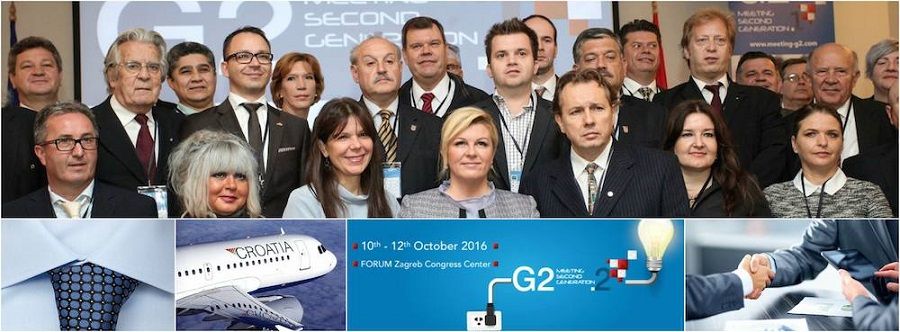
This year’s conference will also present possibilities for investing into Croatia, best practice examples and specific features of different industries. The first day is reserved for “Who’s Who in G2?“, where every participant will be able to present themselves briefly and exchange contacts with others, as well as for a “Pitch Session” where 10 Croatian startups will present themselves with the aim of obtaining financial support from businessmen from all over the world.
The second day is reserved for seven panel discussions covering the topics of tourism, Croatian delicacies, blockchain initiatives, the state of play on the real estate market, but also discussing the potential of Croatian chambers of commerce worldwide and the preconditions for greater investments by the diaspora into the country. The panels will feature more than 40 participants, well-known Croatian businessmen from the country and abroad, as well as representatives of state and local institutions.
For example, the panel titled “Success Comes through the Stomach” or production of delicacies in Croatia, along with representatives of the companies Agropošta, Volim Ljuto: I Like It Hot and Podravka, will also include Neb Chupin, creator of the Dida Boža, i.e. Dalmatia brand, who has been successfully placing delectable spreads on the global market. Another panel of note will be the one on “Croatian Tourism – Out of the Box”, to discuss non-traditional forms of tourism that could extend the tourist season.
For more information about this diaspora event, visit the G2.4 Facebook event page.
Looking for more information about the Croatia diaspora? Follow the TCN Croatia diaspora section.
Croatian Diaspora to More Easily Acquire Croatian Citizenship
The Croatian language exam will no longer be part of the diaspora requirements for citizenship - good news for the Croatian diaspora.
3rd Annual Croatia-American Professionals Conference Attracts 40 Speakers, 300 Delegates
Keynote speeches focused on the challenges and opportunities facing the Croatian diaspora and how to expand influence in meaningful ways.

